China's diplomacy in full swing after 20th Party Congress
Diplomatic activities appear to be back at full swing after the 20th Party Congress. Zaobao correspondent Yang Danxu notes that the visits by heads of states to China are driven by Beijing's objectives of bringing its neighbours close, stabilising relations with Europe, and strengthening relations with developing countries. Will this help improve China's relations and international image, especially amid the tense geopolitical background?
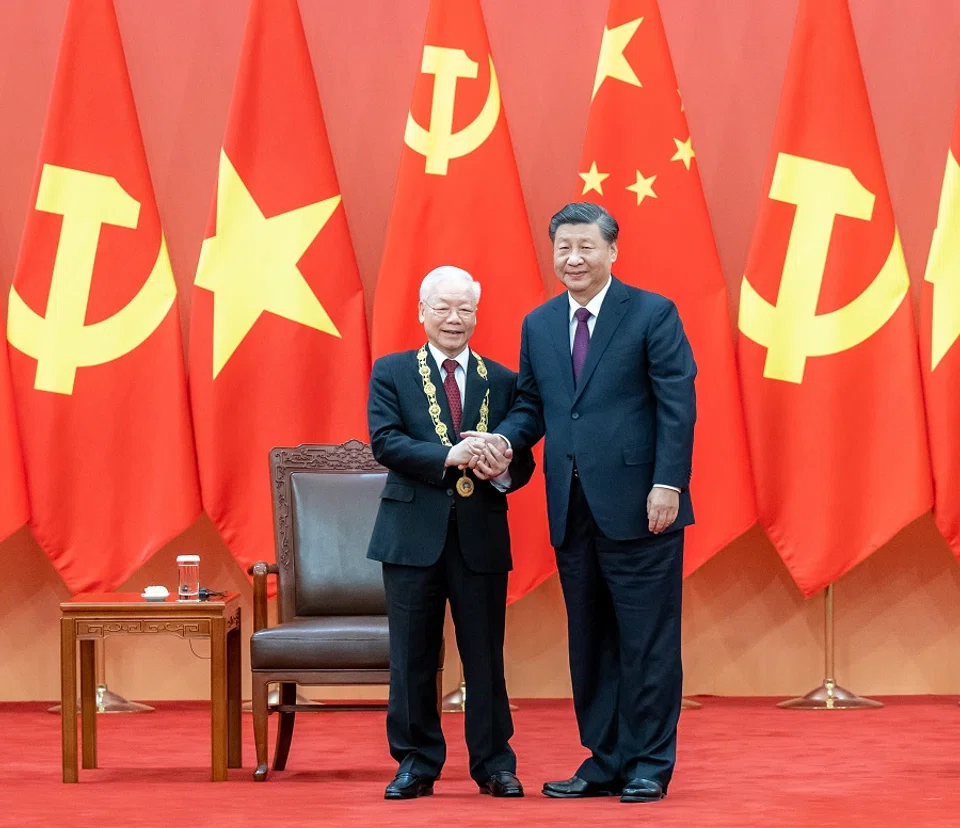
Less than two weeks after the Chinese Communist Party (CCP)'s 20th Party Congress, Beijing is entering its most intense week of diplomatic activity since the Winter Olympics earlier this year.
Putting aside sovereignty disputes
On 30 October, Communist Party of Vietnam General Secretary Nguyen Phu Trong became the first foreign politician to visit China after the 20th Party Congress. He received a grand welcome with a 21-cannon salute at Tiananmen Square on 31 October, along with a People's Liberation Army Honour Guard inspection ceremony.
The televised welcome ceremony showed Trong and CCP General Secretary Xi Jinping, who has rarely met foreign dignitaries in person since the Covid-19 pandemic, unmasked. They shook hands, embraced and even greeted each other cheek-to-cheek, which was also rare. Xi also awarded Trong the Friendship Medal in a grand ceremony.
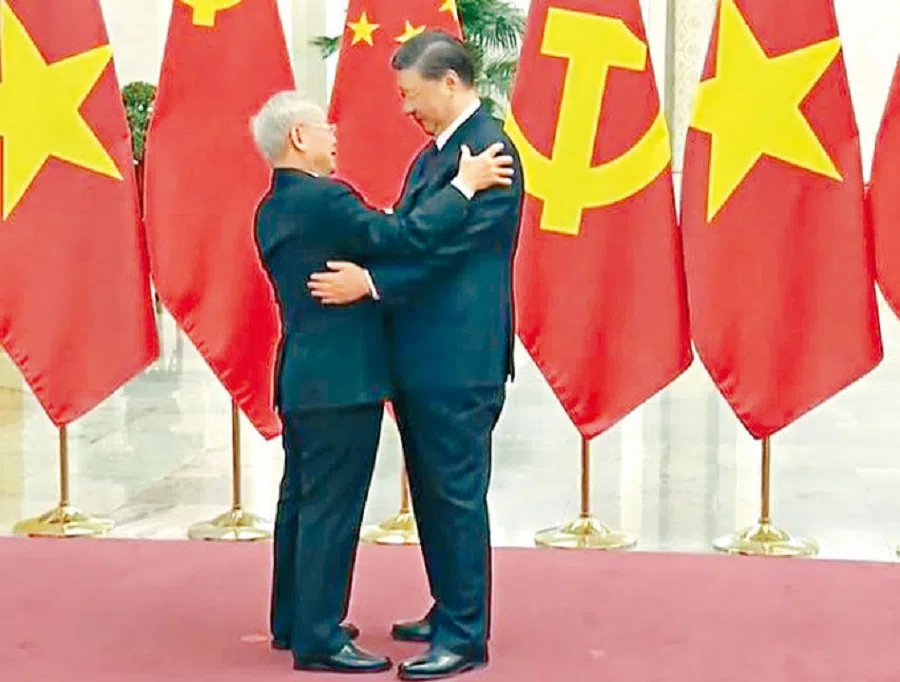
On 1 November, China and Vietnam issued a joint statement on further strengthening and deepening the comprehensive strategic cooperative partnership between both countries. It stressed the importance of pursuing a "correct political direction" for China-Vietnam relations and managing differences on the basis of mutual understanding and respect.
China has extended an olive branch in trade to Vietnam with the joint statement, agreeing to facilitate clearance procedures for Vietnamese fruits, bird's nests and other agricultural products. Vietnam reciprocated by reaffirming its commitment to the one-China policy and vowing not to develop any official relations with Taiwan.
Beijing is hoping that through economic goodwill and by putting aside sovereignty disputes, it could reach out and befriend neighbouring countries to improve its current diplomatic situation.
The statement also mentioned that both leaders exchanged views on maritime issues and agreed that it is crucial to properly manage differences and maintain peace and stability in the South China Sea (SCS). They agreed to continue promoting the full and effective implementation of the Declaration on the Conduct of Parties in the SCS, and to reach a consensus on a code of conduct in the SCS as soon as possible. They also agreed to manage maritime differences, refrain from actions that would complicate the situation and escalate disputes, maintain peace and stability in the SCS, and promote maritime cooperation.
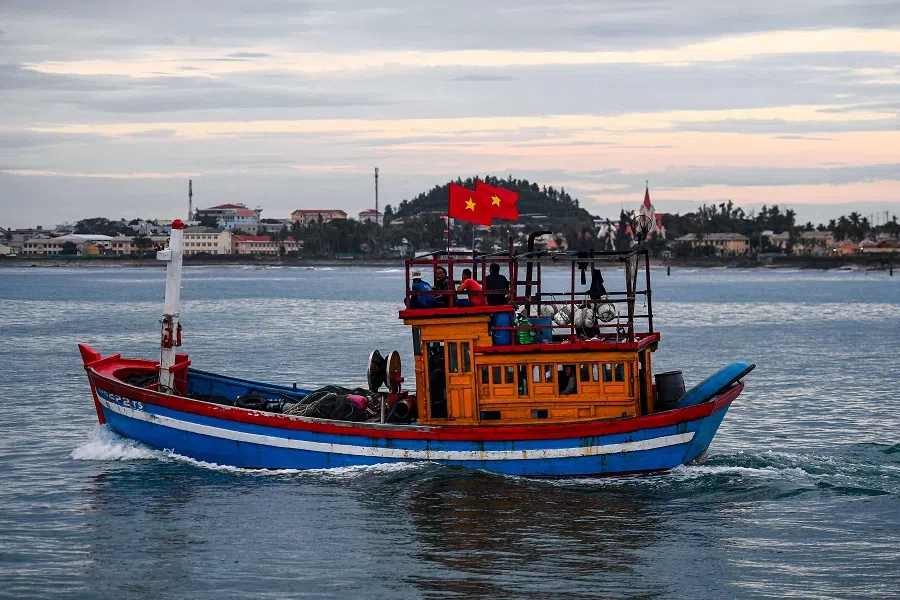
While China and Vietnam are important trade partners, territorial disputes in the SCS have always been a thorn in their relationship. By restarting diplomatic activities after the 20th Party Congress and inviting Trong to be the first foreign leader to visit China, Beijing is hoping that through economic goodwill and by putting aside sovereignty disputes, it could reach out and befriend neighbouring countries to improve its current diplomatic situation.
German chancellor's 'day trip'
The Chinese foreign ministry announced earlier that Beijing will be hosting two other leaders from developing countries this week: Pakistani Prime Minister Shehbaz Sharif, China's "hardcore" friend; and Tanzanian President Samia Suluhu Hassan.
But a major highlight would be German Chancellor Olaf Scholz's visit to China on 4 November. Due to the complexities of China's anti-Covid policy, Scholz will only be in the country for a day without staying overnight. However, all eyes will still be on this visit, described as a "day trip" by global media.
It will be Scholz's first visit to China as German chancellor, and he will also be the first Western leader to visit China following the 20th Party Congress, and the first European Union (EU) leader to visit China in the three years since the pandemic began.
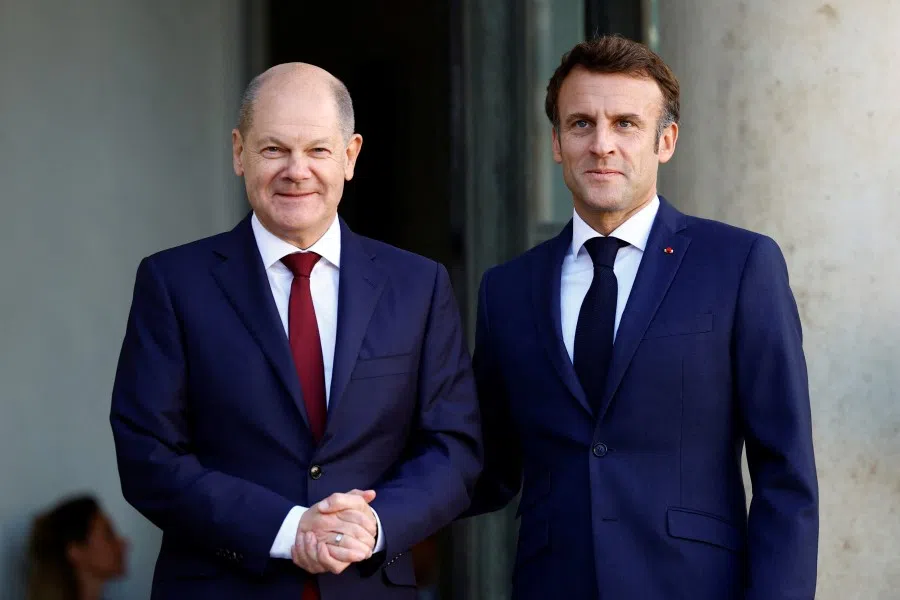
Nonetheless, Scholz's visit to China is facing huge backlash in Germany and the EU. Within Germany, The Greens and the Free Democratic Party - which are also part of the coalition government - call for reducing Germany's dependence on China, and believe that Scholz's visit is sending the wrong signal. Foreign Minister Annalena Baerbock of the Greens party warned that Berlin has to avoid the same mistake it made with its relations with Russia, which resulted in Germany's dependence on Russian energy.
In the EU, French President Emmanuel Macron urged Scholz to visit Beijing as part of a joint delegation, but the chancellor still decided to go alone, much to the chagrin of other EU members, who believe that this undermines EU unity.
Before his "day trip", Scholz had pushed through a deal for Chinese shipping giant Cosco to acquire a container terminal in Hamburg - a move seen as being friendly to Beijing. He will also bring a high-level delegation of German industrialists, including the top management of Volkswagen, BMW, Siemens, Deutsche Bank and BioNTech, according to reports. Clearly, economic and trade cooperation is the main item on Scholz's agenda.
Scholz's visit also holds great symbolic significance for Beijing.
Stabilising China-Europe relations
The impact of the unending war in Ukraine on Europe's economy and the resulting uncertainties have put a lot of pressure on Scholz's China visit, which has become a careful balancing act between economic benefits, and strategy and ideology.
Scholz's visit also holds great symbolic significance for Beijing. As Germany is a leader in the EU, Scholz's visit could improve China-Germany relations and help stabilise China-Europe relations, which have been affected by the war in Ukraine and the geopolitical tussle between China and the West. This could give other European countries renewed confidence in Beijing.
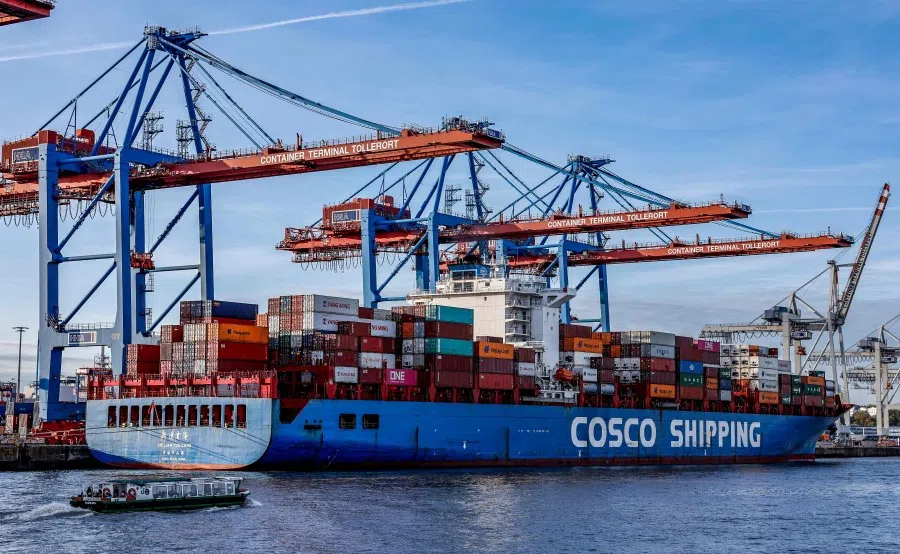
Bringing its neighbours close, stabilising relations with Europe, and strengthening relations with developing countries - these are the three main objectives and motivations for Beijing's diplomatic blitz following the 20th Party Congress.
Indeed, it is easier said than done for China's diplomacy to return to pre-pandemic levels.
Over nearly three years of the pandemic, Beijing has been quiet as the home ground of China's diplomacy, and face-to-face exchanges between senior Chinese officials and foreign leaders have been extremely limited. The initiation of frequent diplomatic activity following the 20th Party Congress shows that Beijing wants to revive China's diplomacy and gradually resume the incoming and outgoing visits of pre-pandemic days.
However, high-pressure pandemic measures and strict quarantine policies are still in place in China - even the German chancellor can only make a one-day visit to avoid the complicated pandemic policies. Indeed, it is easier said than done for China's diplomacy to return to pre-pandemic levels.
For Lianhe Zaobao's special reports on the 20th Party Congress, click here.
This article was first published in Lianhe Zaobao as "中国拉开二十大后外交序幕".



![[Big read] When the Arctic opens, what happens to Singapore?](https://cassette.sphdigital.com.sg/image/thinkchina/da65edebca34645c711c55e83e9877109b3c53847ebb1305573974651df1d13a)

![[Video] George Yeo: America’s deep pain — and why China won’t colonise](https://cassette.sphdigital.com.sg/image/thinkchina/15083e45d96c12390bdea6af2daf19fd9fcd875aa44a0f92796f34e3dad561cc)